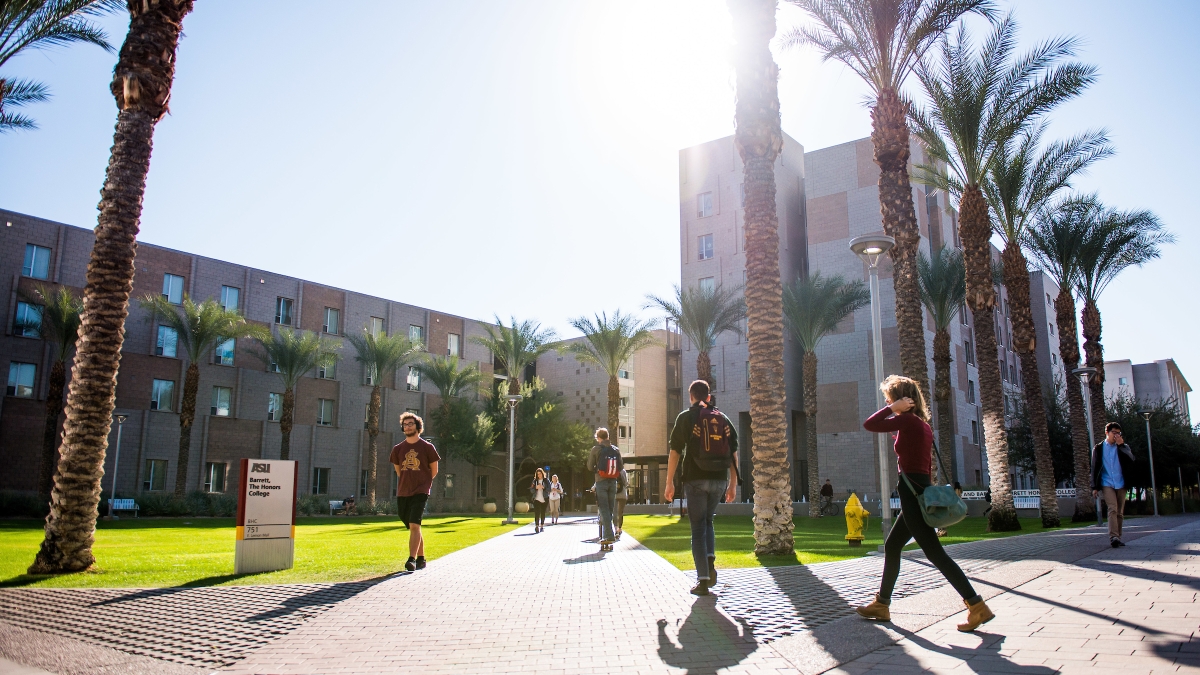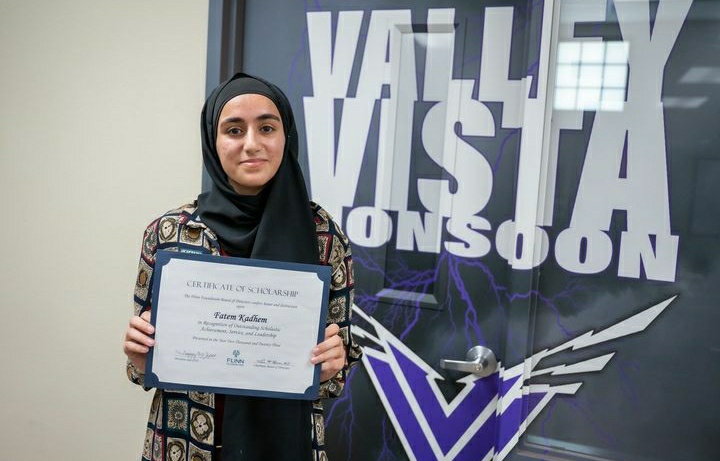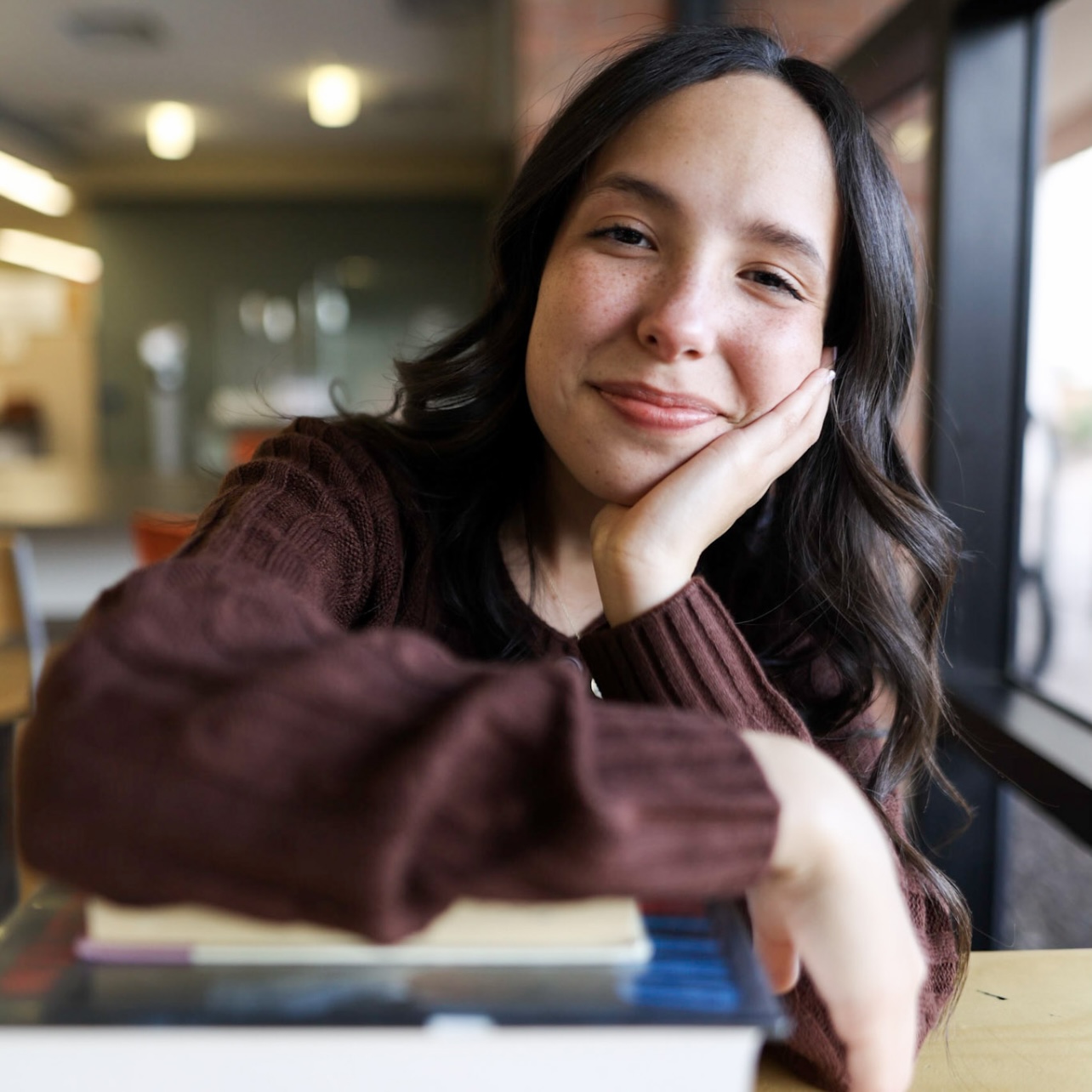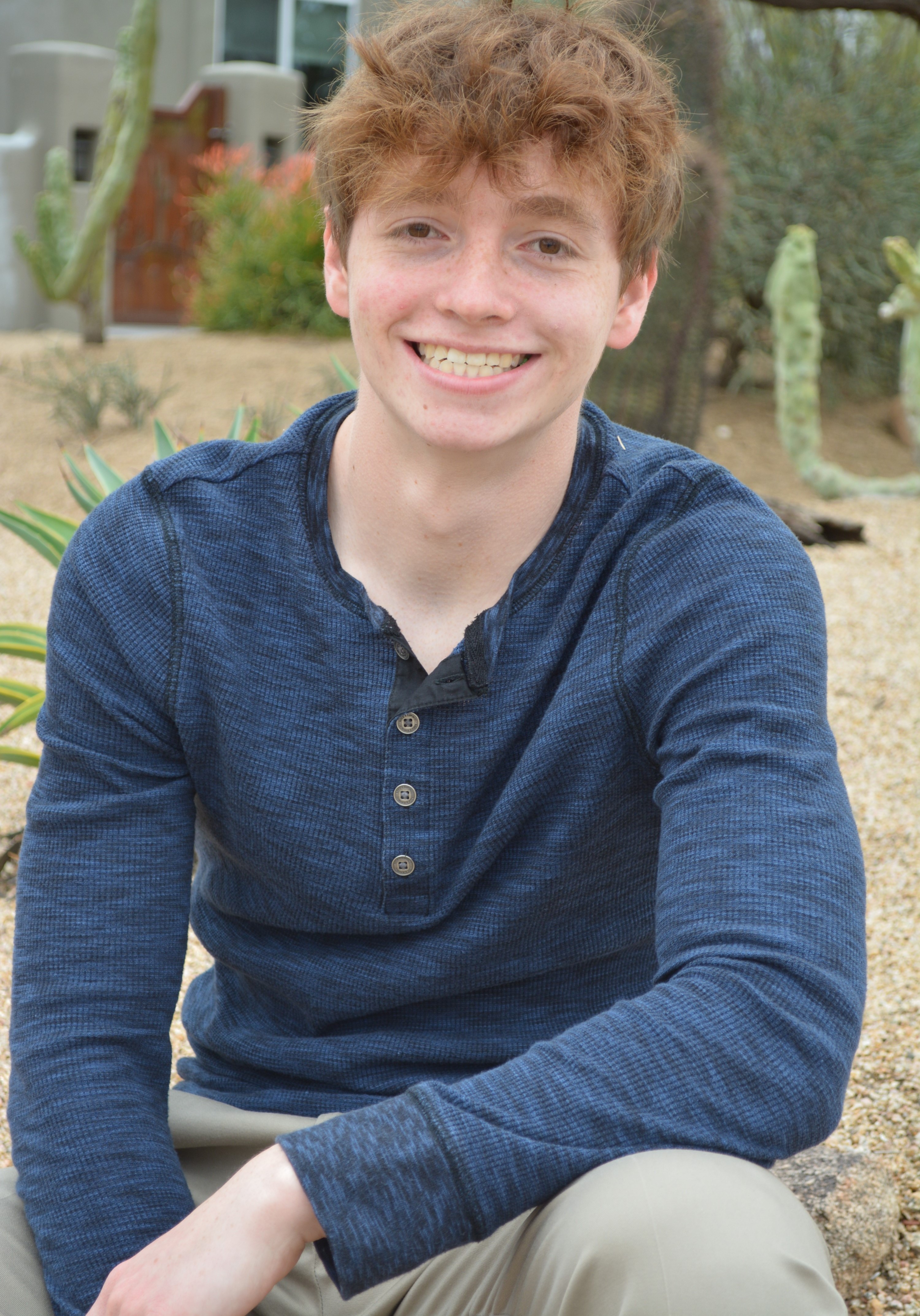Nine Flinn Scholars, winners of the state’s most prestigious scholarship, have chosen to become Arizona State University Sun Devils in fall 2023.
The Flinn Scholarship, supported by the Phoenix-based Flinn Foundation and Arizona’s three state universities, covers the cost of tuition, fees, housing, meals and at least two study-abroad experiences. The merit-based award is valued at more than $130,000.
The nine first-year students, among 20 Flinn Scholars for 2023, will be in Barrett, The Honors College at their respective ASU campuses. Seven will be based on the Tempe campus, one at Downtown Phoenix and one will be based at both the Tempe and Polytechnic campuses.
Fatem Kadhem
Flinn Scholar Fatem Kadhem always wanted to be an engineer. Two years ago, before starting her junior year at Valley Vista High School in Surprise, she went for a wellness check.
“I was talking to my doctor about college, and I mentioned offhand that I wanted to become an engineer, but I thought that you needed a lot of connections to pursue that field,” she said.
“And she stopped mid-checkup and said, ‘What are you saying? You can pursue that if you want to.’ And that was the first time I considered engineering as a possibility.”
Kadhem will major in mechanical engineering in the Ira A. Fulton Schools of Engineering.
“ASU has an amazing engineering program, and I was really drawn to how many opportunities are given to undergraduates in research and internships. I’m looking forward to that because I want to delve into my career field, and having that access is important to me.”
Fluent in both Arabic and English, Kadhem will minor in French, which she has been studying by herself ever since her French teacher left her school.
“I think globalization is a key part of engineering and having that third language under my belt will be helpful if I wanted to do engineering overseas,” she said.
When she gets to ASU, Kadhem is looking forward to checking out EPICS, the Engineering Projects in Community Service program in which student teams design and build systems to solve problems for charities and schools, and using the Sun Devil Fitness Center.
Kaylee Woods
Kaylee Woods also chose ASU because of her major — nonprofit leadership and management.
“Throughout my high school career, I’ve been really involved in my community, and a huge career goal is to leave a positive impact,” said Woods, who graduated from Cibola High School in Yuma and participated in the Governor’s Youth Commission.
“I was struggling to figure out what major I could pick because it’s such a huge decision to make.”
She was scrolling through the available majors at ASU when she found nonprofit management, in the School of Community Resources and Development.
“I had never seen that major before, and I knew it was a perfect fit for me to be involved in giving back to the community. I knew it was where I would thrive.”
Her decision was cemented when the Flinn Scholars toured all three universities.
“Going from Yuma to the Phoenix area is a huge difference, but I know that in Phoenix I can make the connections I need to make to get ahead and possibly even live in the area post-graduation,” she said.
“During the tour, I got to connect with the staff at the Downtown Phoenix campus, and they were the sweetest people ever. While they were giving us the tour, the students were saying 'hi' to each other and to their professors so it felt like a small community in a big city, which is perfect coming from a small community.”
She’s looking forward to finding out about the many student organizations at ASU.
“I’m someone who loves to be involved so the first day there’s club info, I’ll be there and I’ll be in as many clubs as possible,” she said.
Sam Benavidez
Sam Benavidez also chose ASU for the quality of the education.
“I picked ASU because they were most aligned with what I want to go after, especially in business. They have a very good business school,” said Benavidez, who just graduated from North Phoenix Preparatory Academy and plans to major in finance in the W. P. Carey School of Business.
“I met another Flinn Scholar during my visit and she’s also majoring in finance, and I could already feel the family aspect of the Flinn Scholars, so it was a combination of the business school and that connection.”
Benavidez’s interest in business sparked when he was young and sold popcorn as a Boy Scout. His father told him that money is a tool to be used wisely.
“All the way through high school and middle school, I always liked math and I was interested in ways to use money to be successful,” he said.
“I care about my community and want to help nonprofits manage their money to be successful. I also like the idea of entrepreneurship and controlling your own destiny and however much work you put into that is what you get out.”
After earning his undergraduate degree, he’s considering getting a master’s degree in finance or going to law school.
“I want to make sure everyone has an equal opportunity in things. It’s important for me that everyone is included and no one is excluded and that’s a big motivating factor for me.”
Once he gets to ASU, he’ll look into joining the Arizona Microcredit Initiative, a nonprofit organization that give workshops and small loans to small businesses.
“And I’ve done taekwondo for 10 or 11 years, so I was happy to see that there’s a taekwondo club at ASU,” he said.
The other Flinn Scholars attending ASU are: Joshua Bunnell, Youngker High School, Buckeye, computer science; Zack Okun, Desert Mountain High School, Scottsdale, manufacturing engineering; Nathan Taylor, Superior High School, Superior, political science; Cameron Bautista, Basha High School, Chandler, mathematics; Quinlan Harris, Red Mountain High School, Mesa, mechanical engineering; and Riley Biter, Poston Butte High School, San Tan Valley, molecular biosciences and biotechnology.
More Sun Devil community

ASU president connects with veterans during town hall
Arizona State University President Michael Crow shared his family’s military background, provided university updates and reaffirmed ASU’s commitment to military-affiliated students during a town hall…

Tested tips for taking exams
With May quickly approaching, many students are starting to prep for their most important tests of the year — final exams.Toni Miceli, the inaugural director of the bar exam success program at…

School of Transborder Studies celebrates 15th anniversary
During the summer before his freshman year at Arizona State University, Salvador Macias participated in the AGUILA Youth Leadership Institute, a college access organization designed to help young…





